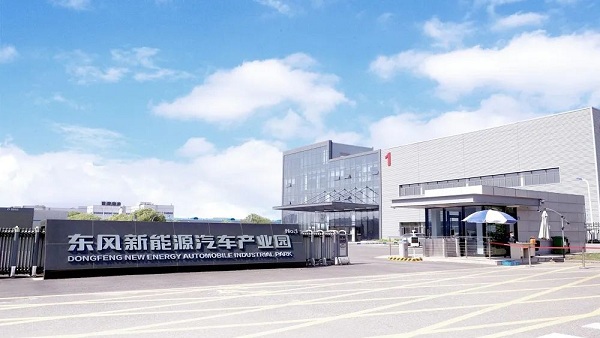

Dongfeng New Energy Automobile Industrial Park. [Photo provided to en.blycjd.com]
A traditional patrol vehicle requires about 1,000 chips to operate, while a new energy vehicle requires even more. At present, about 90 percent of the automobile chips used by domestic car makers are imported from overseas, making the chip shortage an extremely urgent issue to be addressed.
For this reason, Dongfeng Motor Co, a Chinese central State-owned enterprise (SOE) based in the Wuhan Economic & Technological Development Zone (WEDZ), has decided to work with other Chinese SOEs to independently develop reliable automobile chips. Its measures have been supported by both the provincial and municipal governments.
In June 2019, Dongfeng Motor and CRRC founded Zhixin Semiconductor Co. The company then began to research and produce insulated gate bipolar transistor (IGBT) modules, a core component in the electronic control systems of new energy vehicles, or NEVs. It directly controls the core indicators of a vehicle's AC/DC electrical power conversion and its high and low voltage power regulation.
The automation rate of the IGBT production line belonging to Zhixin is high, allowing only eight workers to take charge of over 40 sets of professional equipment.
The mainstream IGBT device market used to be dominated by European, Japanese and American enterprises. Now, the IGBT module produced by Zhixin is at least 10 percent cheaper than its overseas counterparts.
Dongfeng is giving a full play to its leading role in the automobile industrial chain, and cooperating with its business partners to achieve new breakthroughs in auto chips.
A strategic collaboration was achieved in September last year between Dongfeng and CICT. The two sides agreed to jointly establish an automobile chip laboratory. In May this year, a provincial auto chip technological innovation consortium was established in Wuhan, initiated by Dongfeng and participated in by nine local enterprises, colleges and R&D institutions.
In July, Dongfeng signed a framework agreement with CEC to accelerate all-round cooperation in auto chip development and promote related projects.